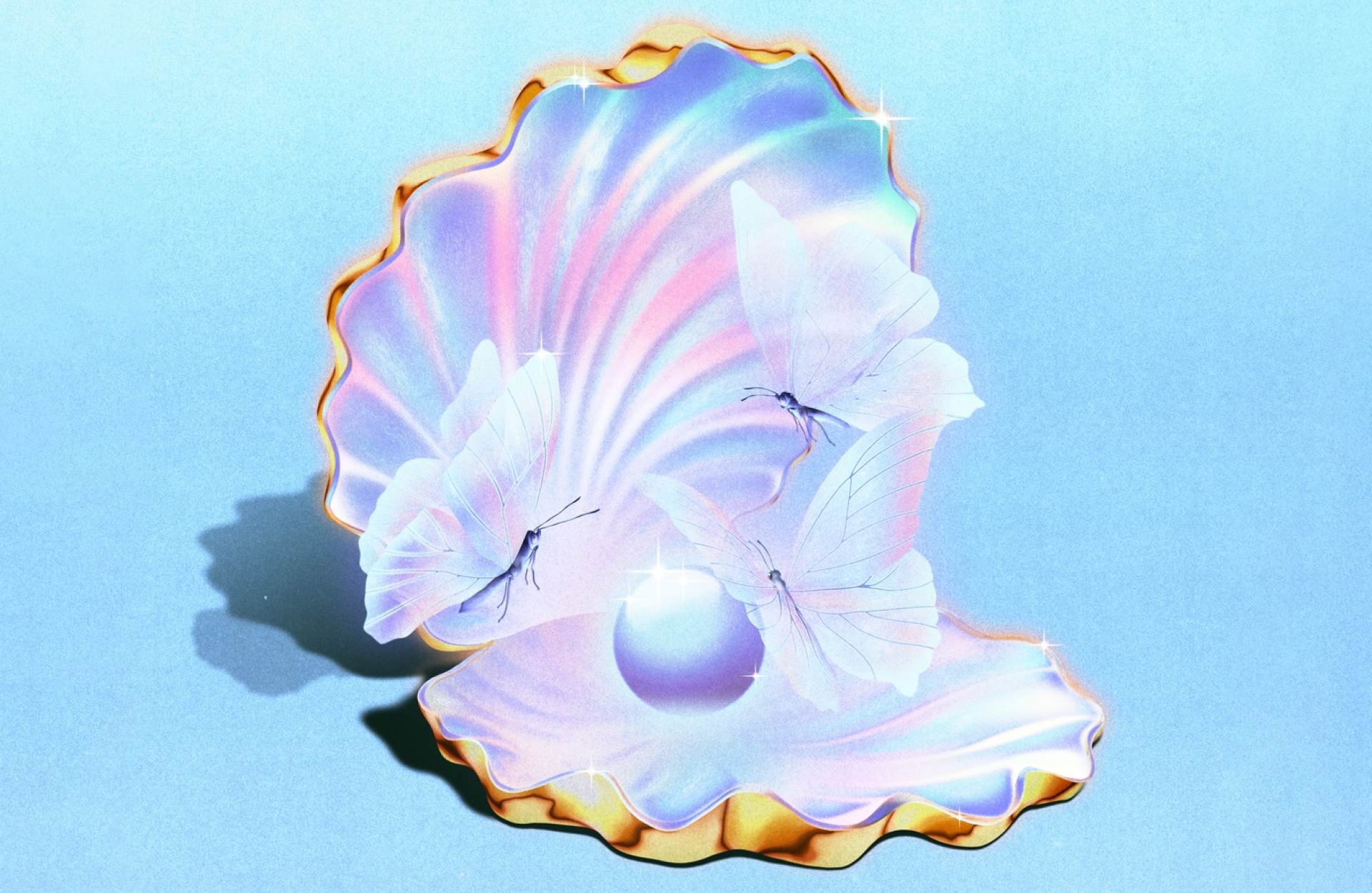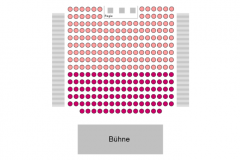My First Sleeping Beauty
Mo | Tu | We | Th | Fr | Sa | Su |
The famous ballet for children
My First Sleeping Beauty tells the timeless story of Princess Aurora, the Sleeping Beauty, and Prince Désiré in the elegance of classical ballet.
To the enchanting music of Piotr I. Tchaikovsky, the friends of the princess and the prince take the audience on a fascinating journey through a fairytale world of dance theater. They encounter good and evil fairies, two cats, a blue bird, Princess Florine, Little Red Riding Hood and even Puss in Boots!
While Martin Schläpfer's choreography of the fairy tale in the large, full-length version danced by the Vienna State Ballet is on the program at the Vienna State Opera for everyone aged 10 and up, My First Sleeping Beauty is an ideal first encounter with the wonderful story for audiences aged 6 and up: danced by children and young people for children.
About the music
"It seems to me that the music of this ballet will be one of my best creations. The subject is so poetic, musically so grateful, that I was very enthusiastic while I was composing it," wrote Piotr I. Tchaikovsky, who was otherwise so often plagued by self-doubt, about his music for Sleeping Beauty. With its colorful orchestration, its rousing dances, its drama, but also its many subtle nuances and not least its subtle humor, it is still considered one of the composer's most important works and more: the perfect ideal of ballet music.
The premiere of Sleeping Beauty in January 1890 at the Mariinsky Theatre in St. Petersburg, choreographed by Marius Petipa and set to music by Piotr I. Tchaikovsky, is one of the highlights of dance history. However, the story of Princess Aurora and Prince Désiré can not only be brought to the stage as an opulent, full-length ballet characterized by numerous divertissements. Christiana Stefanou and the students of the Ballet Academy present it as an exciting dance fairy tale for children, in which Tchaikovsky's music is as captivating as the classical ballet is enchanting.
The Ballet Academy of the Vienna State Opera is considered the first address for ballet training in Austria. Following the efforts of Empress Maria Theresa and Jean Georges Noverre to establish a Viennese dance education in the 1770s, the school was institutionalized in 1870 with the opening of the Court Opera on the Ring.
Today, the academy offers students aged 8 to 18 from Austria and abroad a comprehensive stage dance education. Its graduates dance in many important companies worldwide.
Program and cast
Duration: 60 minutes, no intermission
NEST New State Opera Vienna
Can the Vienna State Opera be reinvented? Perhaps, but it can - and must - be constantly rethought. Rethinking it means making it even more diverse, even more inviting, even more open. You can think of it as an additional venue, a place created especially for children, young people, young adults and families. And it is precisely this idea that we will realize on 7 December 2024.
On this day, a new state opera house will open with its own very rich program - around 100 events on stage in the first season and 80 dates for a wide variety of workshops, for creating, discussing and getting to know each other. A place for everyone who is young and curious - or has remained so! - and want to get involved in something that can be life-changing. In other words, new music theater in its most diverse forms and ramifications, accessible to everyone without any barriers.
It has long been clear that such a venue is needed. Even such a large repertoire house as the Vienna State Opera, with its uniquely broad international offering, reaches its limits when it comes to expanding its repertoire. The Haus am Ring already stages well over 300 performances every season, and it is hardly possible to add substantially more in one house. And if you are really serious about a comprehensive, consistent and continuous program for the younger generations, then you need more than a few additional performances of the notoriously sold-out children's and youth operas. A younger audience is also entitled to an appropriate offering, and not in order to attract the much-vaunted audience of tomorrow, but because the State Opera wants to be there for everyone and every generation has the right to its own theater.
But being serious also means that the new venue should really "play all the tunes". Acoustically as well as technically and spatially. In other words: a real theater, with a stage, orchestra pit, dressing rooms and everything else that goes with it. Many a place has been tested in recent years, some things would only have been possible with almost unimaginable effort, others would not have allowed the artistic freedom we are talking about. It was therefore extraordinarily fortunate that a suitable venue was found not far from the Vienna State Opera, in the Künstlerhaus - and with it a patron who made the project possible in the first place.
What followed was the happiness of planning, dreaming and conceptualizing. Gradually, a musical theater landscape emerged in which Peter and the Wolf meets Twilight of the Gods and Karl Kraus meets the Turkish pop star Gaye Su Akyol. In between, theater maker Jan Lauwers, the opera school, workshops, Georg Nigl & Nikolaus Ofczarek, Nick-Martin Sternitzke, dance karaoke and the young Austrian composer Hannah Eisendle. We have set out to cover as much ground as possible, to offer a program for schools as well, to invite people to watch and participate, to encourage reflection and celebration. Ideally, the program will develop an irresistible pull that draws you into the world of musical theater. And: our first program already offers more premieres and first performances than ever before in a season in the 150-year history of the Haus am Ring.
Our theatrical dreams are now becoming reality. And, we hope, also part of your reality!
ABOUT THE BUILDING
HISTORY
- The Wiener Künstlerhaus was built on Karlsplatz between 1865 and 1868 - at the same time as the Ringstrasse was opened as a prestigious boulevard by Emperor Franz Joseph I (1865) and the Vienna State Opera was completed as the Imperial and Royal Court Opera (1869). Court Opera was completed (1869)
- In 1881, the "French Hall" was added to the Künstlerhaus to accommodate the First International Art Exhibition
- This so-called "French Hall" was used in a variety of ways until 2017 - the Vienna State Opera performed here in 1987 for the Austrian premiere of The White Rose by Udo Zimmermann
- From 2023, the "Französischer Saal" was extensively renovated to enable opera performances to be staged here
- Among other things, two basement floors were built to create more space for the audience and artists!
- A workshop room was built on the 3rd floor
REACH US BY
Adress: Nest- New State Opera In The Künstlerhaus, Karlsplatz 5, 1010 Vienna
SUBWAY: U1, U4, Karlsplatz
STREETCAR: 1, 2, D, 62, 71, Badner Bahn, Karlsplatz
BUS: 4A, 59A, Karlsplatz
LOCAL RAILROAD: Badner Bahn, Karlsplatz

 EN
EN DE
DE IT
IT FR
FR ES
ES RU
RU JP
JP RO
RO
 Seating plan
Seating plan 